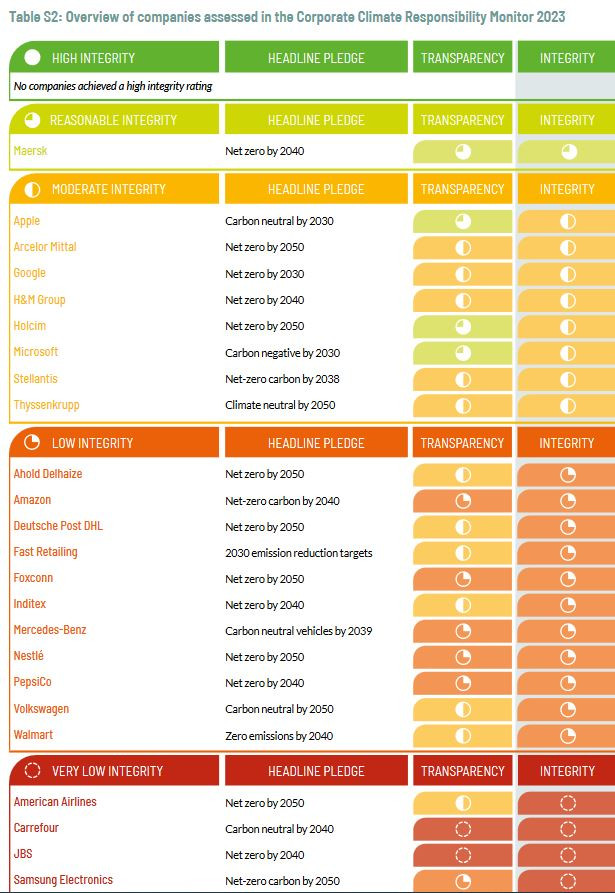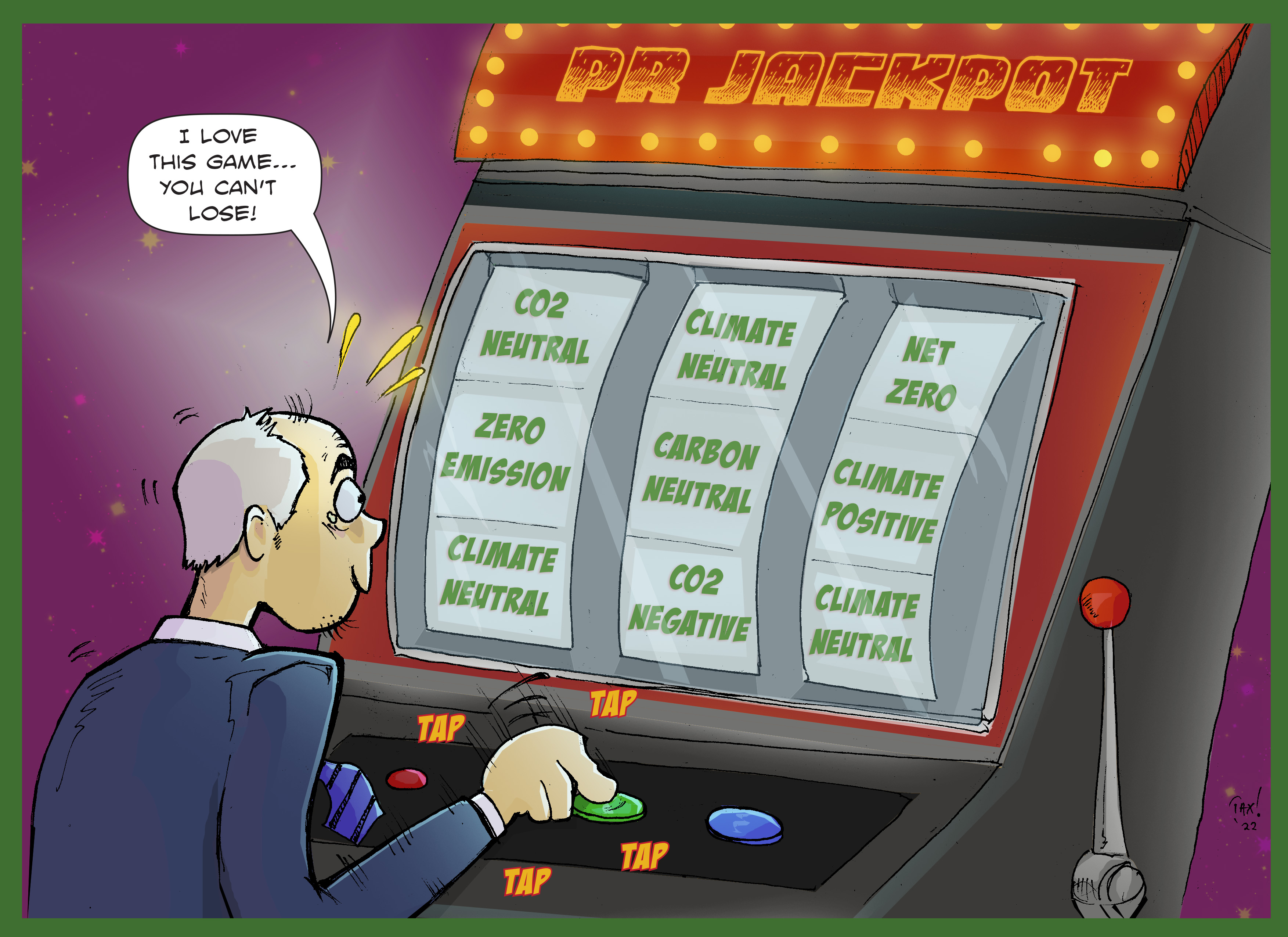Global companies’ “net zero” targets amount to only 36% emissions cut – report
*** Please note: This article is part of the CLEW focus on company climate claims.
This dossier lists our existing publications and future content plans, and our upcoming events are here.
This blog explains why we decided to launch the project.***
The “net zero” climate targets of 24 of the world’s largest companies, which are responsible for around four percent of global emissions, fall far behind their promises, according to an analysis of the companies’ plans for reducing their climate impact. Rather than cutting emissions to almost zero by their target year, the climate strategies amount to reducing the companies’ entire CO2 output by little more than a third, according to the second edition of the “Corporate Climate Responsibility Monitor” by the NewClimate Institute and NGO Carbon Market Watch.
“Taken together, the net zero pledges of the 24 corporations amount to a measly 36 percent by mid-century,” said the authors of the report, which focuses on companies which claim to be climate leaders through their association with the UN-backed Race to Zero campaign.
In response to growing pressure on companies to act on the climate, the number of companies coming out with “net zero” climate targets has grown rapidly. But criticism of these targets, which suggest a move towards zero impact on the climate, has also risen in a void of regulatory oversight which makes it very complicated to differentiate between real climate action and “greenwashing”.
Majority of climate strategies have “low” or “very low” integrity
The report concluded that the climate targets of 15 of the 24 companies had a “low” or “very low” integrity, and that eight companies had climate targets with a “moderate” integrity. Danish shipping company Maersk’s climate strategy was the only one rated as heaving a “reasonable” integrity, while not a single company climate plan achieved a “high” integrity rating. The authors noted a “general lack of progress” since the first iteration of the report was published a year ago.

The authors were particularly damning of the over-reliance by almost all companies surveyed on controversial carbon offsetting schemes to compensate continued emissions, and called for a strict focus on emission reductions instead. The authors estimated that, on average, the companies were planning to offset almost half of their total carbon footprint to claim “carbon neutrality” in the future. They also criticised that companies were planning to hide their use of offsetting under the guise of new terminologies, such as “insetting”.
The report called for a ban on misleading climate claims because they constituted consumer deception. “It is really unrealistic to expect consumers to understand those claims, even though many of those communications are directly targeted at consumers,” said policy expert Gilles Dufrasne from Carbon Market Watch.
Several surveys have shown that consumers don’t understand what “climate neutral” claims mean. Some company climate targets sound very similar at outset, but are profoundly different on closer analysis, the authors said. [This factsheet summarises the report’s methodology for analysing net zero targets]
“Spurious ‘net zero’ and ‘carbon neutrality’ claims are incredibly damaging,” Dufrasne said. “They give the illusion that corporations are taking serious action to tackle the climate crisis when, in reality, they are sweeping the problem under the carpet and leaving it to others and future generations to clean up their mess.”
](/sites/default/files/styles/paragraph_text_image/public/paragraphs/images/1-under-carpet_4.jpg?itok=m4qBEpdJ)
Distant net zero targets a “distraction”
The report argues that the companies’ distant “net zero” targets distract from the urgent need to cut emissions this decade. “In aggregate, the companies covered by our in-depth assessment commit to reduce just 15 percent of their full value chain emissions by 2030, or up to 21 percent under the most optimistic interpretation of their pledges,” the authors said. “This goes less than halfway to the 43 percent reduction in greenhouse gases we need to deliver at the global level to limit temperature rise to around 1.5°C.”
The lack of clear regulatory oversight means that “real climate leaders are struggling to distinguish themselves from those making much more modest commitments,” according to the authors. Just five of the companies under review — H&M Group, Holcim, Stellantis, Maersk, and Thyssenkrupp — commit to reducing their emissions by at least around 90 percent by their respective net-zero target years, the report found. But these companies are put on the same pedestal as others – including American Airlines, Carrefour, Deutsche Post DHL, Fast Retailing (Uniqlo), Inditex (Zara), Nestlé, PepsiCo, Volkswagen and Walmart – which make similar claims […] that actually amount to very limited levels of emission reduction commitments.”
The report also highlighted some examples of climate leadership. “These include, for instance, Maersk, which invests in alternative fuels and vessels; Google, which is pioneering 24/7 monitoring and matching renewable energy generation with consumption; Deutsche Post DHL, which invests in electrifying its fleet and scaling-up the production of low-carbon fuels for road, ocean and air transport; and Apple, which is taking measures to make high quality renewable energy procurement options more accessible for their suppliers, as well as implementing measures to extend the lifetimes of devices.”

